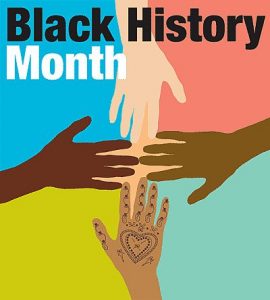Black History month in October is an opportunity for schools to focus on the achievements and positive contributions of black peoples to world history and UK society.

The benefits are for all children: Black heritage pupils can feel proud to hear of people whose contributions have made our world a better place, contributing to positive self-identity and ultimately better achievements, and pupils from all other backgrounds will also benefit through learning about the contributions to our history by people from all parts of the world and all ethnicities. This learning will challenge the often negative myths in parts of the media and in some homes and the emphasis on white British history in some schools.
For some Black History month may be new, for others October is the month they regularly celebrate Black history. In some schools staff and students will be very familiar with the aims and positive outcomes of including Black history, as they do it all year round, finding opportunities to include black and other BME role models, stories and achievements across the curriculum throughout the year.
Black History Month is an opportunity to challenge stereotypes, to learn about historical endeavors and the lives of peoples of other cultures, to discuss racism and other forms of discrimination as well as to discuss, promote and celebrate cultural diversity.
Celebrating Black History Month will prepare pupils for life in a diverse society, contribute to schools’ inclusive ethos and help towards meeting some of the school’s obligations under the Equalities Act. It is also a way of addressing the need for schools to promote ‘British values’, to actively promote diversity and challenge discrimination.

Work within Black History Month can be included in all curriculum subjects as well as in assemblies and should be evident in displays both in and out of the classroom. It is an ideal time to invite parents and members of BME communities into school or for visits for students to BME communities.
Examples of themes that schools have used in Black History Month include:
- Black Scientists, e.g. Charles Drew and Dr Maggie Aderin-Pocock:
http://www.biography.com/people/charles-drew-9279094
http://www.theguardian.com/science/2014/sep/21/maggie-aderin-pocock-interview-bbc-nasa-space
- Black role models, heroes and heroines, e.g. Mary Seacole:
http://www.bbc.co.uk/schools/primaryhistory/famouspeople/mary_seacole/
- Black writers, e.g. Malorie Blackman:
http://www.malorieblackman.co.uk
- Black artists, e.g. Chris Ofifi:
http://www.bbc.co.uk/arts/yourpaintings/artists/chris-ofili/paintings/slideshow#/11
- African Black History, e.g. Nelson Mandela
http://www.bbc.co.uk/schools/primaryhistory/famouspeople/nelson_mandela/
- American Black History, e.g. Rosa Parks and Martin Luther King:
http://www.biography.com/people/rosa-parks-9433715
http://www.bbc.co.uk/timelines/z86tn39
- Local black people and their contribution to our communities, e.g. The ‘Black Bristolians’ resource has lesson plans and resources based around biographies of 25 Black people who have made a positive contribution to life in Bristol, and includes work on the Bristol bus boycott of 1963.:
https://www.sgsts.org.uk/SupportForVulnerablePupils/EMTAS/SitePages/Biographies.aspx
Black History resources can also be found at the following links:
- http://www.blackhistorymonth.org.uk
- http://officialblackhistorymonthuk.co.uk
- http://www.realhistories.org.uk
- http://www.blackpresence.co.uk
- http://www.biography.com/news/section/history-and-culture
- http://www.100greatblackbritons.com
- http://www.educationcity.com/uk/topicals/topical-printables/2015-sep/black-history-month
Other events linked to Black History thoroughout the year include:
- Martin Luther Day – January 18th
- Nelson Mandela Day – July 18th
- Coronation of Haile Selassie – November 2nd
- Abolition of slavery – December 2nd
Many thanks to Dot Lee for this article which has been updated from the version which appeared in the Kick Start Enterprise newsletter, September 2016
Better Bilingual consultants are able to work with schools to help embed Black and other BME history into schools’ existing curriculum.
For more information email info@betterbilingual.co.uk
0 Comments